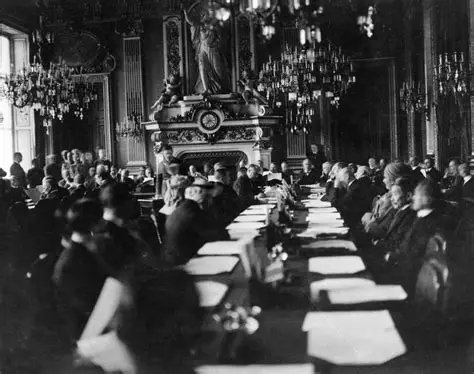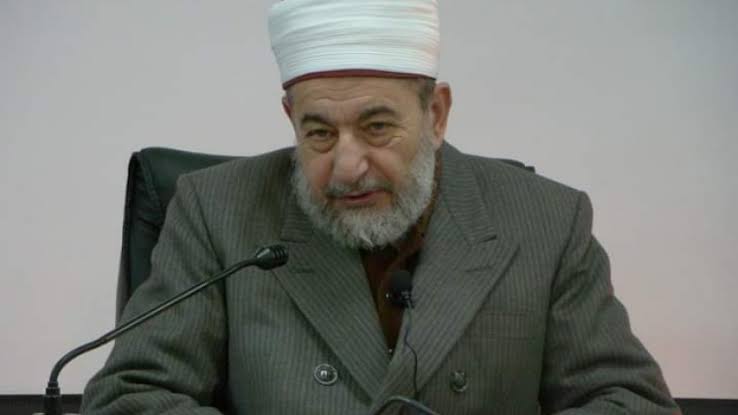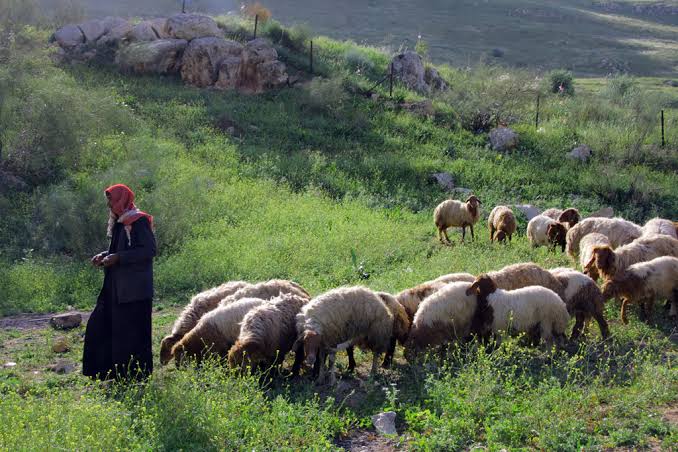[1]: Al-Qadī, al-Mufassīr Badr al-Dīn Muḥammad Ibn Ibrāhīm Ibn Jamāʿah al-Shafiʿī (d. 733)
[2]: Al-Qadī Muḥammad Ibn al-Ḥarīrī al-Anṣārī al-Ḥanafī
[3]: Al-Qadī Muḥammad Ibn Abī Bakr al-Mālikī.
[4]: Al-Qadī Aḥmad Ibn ʿUmar al-Maqdisī al-Ḥanbalī.
[2]: Al-Qadī Muḥammad Ibn al-Ḥarīrī al-Anṣārī al-Ḥanafī
[3]: Al-Qadī Muḥammad Ibn Abī Bakr al-Mālikī.
[4]: Al-Qadī Aḥmad Ibn ʿUmar al-Maqdisī al-Ḥanbalī.
He was imprisoned by a fatwā signed by them (the four judges mentioned above) in the year 726 AH.
See the book *ʿUyūn al-Tawārīkh* and *Najm al-Muhtadī*
[5]: Shaykh Ṣāliḥ Ibn ʿAbd Allāh al-Baṭāʾiḥī (d. 707), Shaykh of al-Manībīʿ, al-Rifāʿī, resident of Damascus.
See the book *ʿUyūn al-Tawārīkh* and *Najm al-Muhtadī*
[5]: Shaykh Ṣāliḥ Ibn ʿAbd Allāh al-Baṭāʾiḥī (d. 707), Shaykh of al-Manībīʿ, al-Rifāʿī, resident of Damascus.
He was among those who stood against Ibn Taymiyyah and refuted him.
See *Rawḍat al-Nāẓirīn* and *Khulāṣat Manāqib al-Ṣāliḥīn* by Aḥmad al-Watrī.
Al-Hāfiz Ibn Hajar gave his biographical entry in the book *al-Durar al-Kāminah*.
See *Rawḍat al-Nāẓirīn* and *Khulāṣat Manāqib al-Ṣāliḥīn* by Aḥmad al-Watrī.
Al-Hāfiz Ibn Hajar gave his biographical entry in the book *al-Durar al-Kāminah*.
[6]: His contemporary Shaykh Kamāl al-Dīn Muḥammad Ibn Abī al-Ḥasan ʿAlī al-Sarrāj al-Rifāʿī al-Qurashī al-Shāfiʿī
See *Tuffāḥ al-Arwāḥ* and *Fattāḥ al-Arbāḥ*
[7]: Al-Faqīh, al-Mutakallīm speaking on behalf of the Ṣūfīs in his time,
See *Tuffāḥ al-Arwāḥ* and *Fattāḥ al-Arbāḥ*
[7]: Al-Faqīh, al-Mutakallīm speaking on behalf of the Ṣūfīs in his time,
Shaykh Tāj al-Dīn Aḥmad Ibn ʿAṭāʾ Allah al-Iskandarī al-Shādhilī (d. 709)
[8]: Qadī Al-Qudat in the Egyptian lands, Aḥmad Ibn Ibrāhīm al-Sarūjī al-Ḥanafī (d. 710)
See *ī'tiradat 'ala Ibn Taymiyyah fī 'īlm al-kalam*
[9]: Qadī Al-Qudat of the Mālikīs in Egypt,
[8]: Qadī Al-Qudat in the Egyptian lands, Aḥmad Ibn Ibrāhīm al-Sarūjī al-Ḥanafī (d. 710)
See *ī'tiradat 'ala Ibn Taymiyyah fī 'īlm al-kalam*
[9]: Qadī Al-Qudat of the Mālikīs in Egypt,
ʿAlī Ibn Makhlūf (d. 718).
He used to say:
"Ibn Taymiyyah says with tajsīm, and according to us, whoever holds this belief has disbelieved and it is obligatory to kill him."
[10]: Al-Faqīh Shaykh ʿAlī Ibn Yaʿqūb al-Bakrī (d. 724).
He used to say:
"Ibn Taymiyyah says with tajsīm, and according to us, whoever holds this belief has disbelieved and it is obligatory to kill him."
[10]: Al-Faqīh Shaykh ʿAlī Ibn Yaʿqūb al-Bakrī (d. 724).
When Ibn Taymiyyah entered Egypt, he stood against him and denounced what he said.
[11]: Al-Faqīh Shams al-Dīn Muḥammad Ibn ʿAdlān al-Shāfiʿī (d. 749).
He used to say: Ibn Taymiyyah used to say:
"Verily, Allah is above the Throne with a real aboveness, and that Allah
[11]: Al-Faqīh Shams al-Dīn Muḥammad Ibn ʿAdlān al-Shāfiʿī (d. 749).
He used to say: Ibn Taymiyyah used to say:
"Verily, Allah is above the Throne with a real aboveness, and that Allah
speaks with letter and sound"
[12]: Al-Hafīz, Mujtahīd Taqī al-Dīn al-Subkī (d. 756).
See his writings:
*al-Iʿtibār bi-Baqāʾ al-Jannah wa al-Nār*
*al-Durra al-Muḍiyyah fī al-Radd ʿalā Ibn Taymiyyah*
*Shifāʾ al-Saqām fī Ziyārat Khayr al-Anām*
[12]: Al-Hafīz, Mujtahīd Taqī al-Dīn al-Subkī (d. 756).
See his writings:
*al-Iʿtibār bi-Baqāʾ al-Jannah wa al-Nār*
*al-Durra al-Muḍiyyah fī al-Radd ʿalā Ibn Taymiyyah*
*Shifāʾ al-Saqām fī Ziyārat Khayr al-Anām*
*al-Naẓar al-Muḥaqqiq fī al-Ḥalaf bi-al-Ṭalāq al-Muʿallaq*
*Naqd al-Ijtimāʿ wa al-Iftirāq fī Masāʾil al-Aymān wa al-Ṭalāq*
*al-Taḥqīq fī Masʾalat al-Taʿlīq*
*Rafʿ al-Shiqāq ʿan Masʾalat al-Ṭalāq*
[13]: He debated him: al-Muhaddīth, al-Mufassīr, al-Faqīh
*Naqd al-Ijtimāʿ wa al-Iftirāq fī Masāʾil al-Aymān wa al-Ṭalāq*
*al-Taḥqīq fī Masʾalat al-Taʿlīq*
*Rafʿ al-Shiqāq ʿan Masʾalat al-Ṭalāq*
[13]: He debated him: al-Muhaddīth, al-Mufassīr, al-Faqīh
Muḥammad Ibn ʿUmar ibn Makkī, known as Ibn al-Marḥal al-Shāfiʿī (d. 716)
[14]: He was criticized by al-hafīz Abū Saʿīd al-ʿAlāʾī (d. 761).
See the book *Dhakhaʾir al-Qaṣr fī Tarājim Nubalāʾ al-ʿAṣr* and the book *Aḥādīth Ziyārat Qabr al-Nabī ﷺ*.
[15]: Qadī Al-Qudat of
[14]: He was criticized by al-hafīz Abū Saʿīd al-ʿAlāʾī (d. 761).
See the book *Dhakhaʾir al-Qaṣr fī Tarājim Nubalāʾ al-ʿAṣr* and the book *Aḥādīth Ziyārat Qabr al-Nabī ﷺ*.
[15]: Qadī Al-Qudat of
al-Madīnah al-Munawwarah
Abū ʿAbd Allāh Muḥammad ibn Muslim ibn Mālik al-Ṣāliḥī al-Ḥanbalī (d. 726).
[16]: His contemporary
Shaykh Aḥmad ibn Yaḥyā al-Kilābī al-Ḥalabī known as Ibn Jahbal (d. 733).
in his book *Risālah fī Nafy al-Jihah*
Abū ʿAbd Allāh Muḥammad ibn Muslim ibn Mālik al-Ṣāliḥī al-Ḥanbalī (d. 726).
[16]: His contemporary
Shaykh Aḥmad ibn Yaḥyā al-Kilābī al-Ḥalabī known as Ibn Jahbal (d. 733).
in his book *Risālah fī Nafy al-Jihah*
[17]: Al-Qadī Kamāl al-Dīn Ibn al-Zamalkanī (d. 727).
[18]: He was debated by al-Qadī Ṣafī al-Dīn al-Hindī (d. 715).
[19]: Al-Faqīh, al-Muhaddīth
ʿAlī Ibn Muḥammad al-Bājī al-Shāfiʿī (d. 714).
He debated him in fourteen places and silenced him.
[18]: He was debated by al-Qadī Ṣafī al-Dīn al-Hindī (d. 715).
[19]: Al-Faqīh, al-Muhaddīth
ʿAlī Ibn Muḥammad al-Bājī al-Shāfiʿī (d. 714).
He debated him in fourteen places and silenced him.
[20]: The Historian, al-Faqīh, al-Mutakallīm
Fakhr Ibn al-Muʿallim al-Qurashī (d. 725).
See the book *Najm al-Muhtadī wa Rajm al-Muʿtadī*
[21]: Al-Faqīh
Muḥammad Ibn ʿAlī ibn ʿAlī al-Māzinī al-Dahhān al-Dimashqī (d. 721).
[22]: Al-Faqīh
Abū al-Qāsim Aḥmad Ibn Muḥammad
Fakhr Ibn al-Muʿallim al-Qurashī (d. 725).
See the book *Najm al-Muhtadī wa Rajm al-Muʿtadī*
[21]: Al-Faqīh
Muḥammad Ibn ʿAlī ibn ʿAlī al-Māzinī al-Dahhān al-Dimashqī (d. 721).
[22]: Al-Faqīh
Abū al-Qāsim Aḥmad Ibn Muḥammad
Ibn Muḥammad al-Shīrāzī (d. 733).
See *Risālah fī al-radd ʿalā Ibn Taymiyyah*
[23]: He was refuted by al-Faqīh, al-Muhaddīth Jalāl al-Dīn Muḥammad al-Qazwīnī al-Shāfiʿī (d. 739)
[24]: The decree of Sultan Ibn Qalāwūn (d. 741), for imprisoning him.
[25]: His contemporary
See *Risālah fī al-radd ʿalā Ibn Taymiyyah*
[23]: He was refuted by al-Faqīh, al-Muhaddīth Jalāl al-Dīn Muḥammad al-Qazwīnī al-Shāfiʿī (d. 739)
[24]: The decree of Sultan Ibn Qalāwūn (d. 741), for imprisoning him.
[25]: His contemporary
Al-Hafīz al-Dhahabī (d. 748)
See *Bayān Zaghal al-ʿIlm wa al-Ṭalab* and *al-Naṣīḥah al-Dhahabiyyah*
[26]: al-Mufassīr Abū Ḥayyān al-Andalusī (d. 745)
[27]: Shaykh ʿAfīf al-Dīn ʿAbd Allāh ibn Asʿad al-Yāfiʿī al-Yamanī (d. 768)
[28]: al-Faqīh, traveler Ibn Baṭṭūṭah
See *Bayān Zaghal al-ʿIlm wa al-Ṭalab* and *al-Naṣīḥah al-Dhahabiyyah*
[26]: al-Mufassīr Abū Ḥayyān al-Andalusī (d. 745)
[27]: Shaykh ʿAfīf al-Dīn ʿAbd Allāh ibn Asʿad al-Yāfiʿī al-Yamanī (d. 768)
[28]: al-Faqīh, traveler Ibn Baṭṭūṭah
(d. 779)
In the book *Rihla*
[29]: *Ṭabaqāt al-Shāfiʿiyyah al-Kubrā* by al-Faqīh Tāj al-Dīn al-Subkī (d. 771)
[30]: *ʿUyūn al-Tawārīkh* by Ibn Shākir al-Kutubī (d. 764), a student of Ibn Taymiyyah.
[31]: *al-Tuḥfah al-Mukhtārah fī al-Radd ʿalā Munkir al-Ziyārah*
In the book *Rihla*
[29]: *Ṭabaqāt al-Shāfiʿiyyah al-Kubrā* by al-Faqīh Tāj al-Dīn al-Subkī (d. 771)
[30]: *ʿUyūn al-Tawārīkh* by Ibn Shākir al-Kutubī (d. 764), a student of Ibn Taymiyyah.
[31]: *al-Tuḥfah al-Mukhtārah fī al-Radd ʿalā Munkir al-Ziyārah*
by Shaykh ʿUmar Ibn Abī al-Yaman al-Lakhmī al-Fākihī al-Mālikī (d. 734).
[32]: *al-Maqālah al-Marḍiyyah fī al-Radd ʿalā Man Yankir al-Ziyārah al-Muḥammadiyyah* which was printed within the book *al-Barāhīn al-Sāṭiʿah* of al-ʿAzzāmī,
by Qadī Muḥammad al-Saʿdī al-Miṣrī
[32]: *al-Maqālah al-Marḍiyyah fī al-Radd ʿalā Man Yankir al-Ziyārah al-Muḥammadiyyah* which was printed within the book *al-Barāhīn al-Sāṭiʿah* of al-ʿAzzāmī,
by Qadī Muḥammad al-Saʿdī al-Miṣrī
al-Akhnaʾī (d. 750).
[33]: *Risālah fī Masʾalat al-Ṭalāq* by Shaykh ʿĪsā al-Zawwāwī al-Mālikī (d. 743)
[34]: *al-Abḥāth al-Jaliyyah fī al-Radd ʿalā Ibn Taymiyyah* by Shaykh Aḥmad Ibn ʿUthmān al-Turkumānī al-Jūzjānī al-Ḥanafī (d. 744).
[33]: *Risālah fī Masʾalat al-Ṭalāq* by Shaykh ʿĪsā al-Zawwāwī al-Mālikī (d. 743)
[34]: *al-Abḥāth al-Jaliyyah fī al-Radd ʿalā Ibn Taymiyyah* by Shaykh Aḥmad Ibn ʿUthmān al-Turkumānī al-Jūzjānī al-Ḥanafī (d. 744).
[35]: *Bayān Mushkil al-Aḥādīth al-Wāridah fī Anna al-Ṭalāq al-Thalāth Wāḥidah* by al-Hafiīz ʿAbd al-Raḥmān Ibn Aḥmad, known as Ibn Rajab al-Ḥanbalī (d. 795)
[36]: Al-Hafīz Ibn Ḥajar al-ʿAsqalānī (d. 852).
refuted Ibn Taymiyyah in his books:
*al-Durar al-Kāminah fī
[36]: Al-Hafīz Ibn Ḥajar al-ʿAsqalānī (d. 852).
refuted Ibn Taymiyyah in his books:
*al-Durar al-Kāminah fī
Aʿyān al-Miʾah al-Thāminah*
*Lisān al-Mīzān*
*Fatḥ al-Bārī Sharḥ Ṣaḥīḥ al-Bukhārī*
*al-Ishārah bi-Ṭuruq Ḥadīth al-Ziyārah*.
[37]: *al-Ajwibah al-Marḍiyyah fī al-Radd ʿalā al-Asʾilah al-Makkiyyah* by al-Hafīz Walī al-Dīn al-ʿIrāqī (d. 826)
[38]: *Tārīkh Ibn Qadī
*Lisān al-Mīzān*
*Fatḥ al-Bārī Sharḥ Ṣaḥīḥ al-Bukhārī*
*al-Ishārah bi-Ṭuruq Ḥadīth al-Ziyārah*.
[37]: *al-Ajwibah al-Marḍiyyah fī al-Radd ʿalā al-Asʾilah al-Makkiyyah* by al-Hafīz Walī al-Dīn al-ʿIrāqī (d. 826)
[38]: *Tārīkh Ibn Qadī
Shuhbah* by Ibn Qadī Shuhbah al-Shāfiʿī (d. 851).
[39]: *Dafʿ Shubah man Shabbaha wa Tamarrad wa Nasaba Dhālika li al-Imām Aḥmad* by Abū Bakr al-Ḥuṣnī (d. 829).
[40]: He was refuted by the Shaykh of Africa, Abū ʿAbd Allāh Ibn ʿArafah al-Tūnisī al-Mālikī (d. 803).
[39]: *Dafʿ Shubah man Shabbaha wa Tamarrad wa Nasaba Dhālika li al-Imām Aḥmad* by Abū Bakr al-Ḥuṣnī (d. 829).
[40]: He was refuted by the Shaykh of Africa, Abū ʿAbd Allāh Ibn ʿArafah al-Tūnisī al-Mālikī (d. 803).
[41]: ʿAlāʾ al-Dīn al-Bukhārī al-Ḥanafī (d. 841), declared him a disbeliever and declared as a disbeliever the one who called him "Shaykh al-Islām."
[42]: *al-Radd ʿalā Ibn Taymiyyah fī al-Iʿtiqādāt* by Shaykh Muḥammad ibn Aḥmad Ḥumayd al-Dīn al-Farghānī al-Dimashqī
[42]: *al-Radd ʿalā Ibn Taymiyyah fī al-Iʿtiqādāt* by Shaykh Muḥammad ibn Aḥmad Ḥumayd al-Dīn al-Farghānī al-Dimashqī
al-Ḥanafī (d. 867).
[43]: *Sharḥ Ḥizb al-Baḥr* by Shaykh Aḥmad Zarrūq al-Fāsī al-Mālikī (d. 899).
[44]: *al-Iʿlān bi al-Tawbīkh liman Dhamm al-Tārīkh* by al-Hafīz al-Sakhāwī (d. 902).
[45]: *al-Qawl al-Nāṣir fī Radd Khubāṭ ʿAlī ibn Nāṣir* by Aḥmad ibn Muḥammad,
[43]: *Sharḥ Ḥizb al-Baḥr* by Shaykh Aḥmad Zarrūq al-Fāsī al-Mālikī (d. 899).
[44]: *al-Iʿlān bi al-Tawbīkh liman Dhamm al-Tārīkh* by al-Hafīz al-Sakhāwī (d. 902).
[45]: *al-Qawl al-Nāṣir fī Radd Khubāṭ ʿAlī ibn Nāṣir* by Aḥmad ibn Muḥammad,
known as Ibn ʿAbd al-Salām al-Miṣrī (d. 931).
[46]: He was criticized by Aḥmad ibn Muḥammad al-Khwārazmī al-Dimashqī, known as Ibn al-Qarā (d. 968).
[47]: *Ishārāt al-Marām min ʿIbārāt al-Imām* by Qadī al-Biyāḍī al-Ḥanafī (d. 1098).
[48]: *Rawḍat al-Nāẓirīn wa Khulāṣat
[46]: He was criticized by Aḥmad ibn Muḥammad al-Khwārazmī al-Dimashqī, known as Ibn al-Qarā (d. 968).
[47]: *Ishārāt al-Marām min ʿIbārāt al-Imām* by Qadī al-Biyāḍī al-Ḥanafī (d. 1098).
[48]: *Rawḍat al-Nāẓirīn wa Khulāṣat
Manāqib al-Ṣāliḥīn* by Shaykh Aḥmad Ibn Muḥammad al-Watrī (d. 980).
[49]: Shaykh Ibn Ḥajar al-Haytamī (d. 974).
[50]: *Sharḥ al-ʿAḍudiyyah* by Shaykh Jalāl al-Dīn al-Dawwānī (d. 928).
[51]: Shaykh ʿAbd al-Nāfiʿ Ibn Muḥammad Ibn ʿAlī Ibn ʿIrāq al-Dimashqī (d. 962).
[49]: Shaykh Ibn Ḥajar al-Haytamī (d. 974).
[50]: *Sharḥ al-ʿAḍudiyyah* by Shaykh Jalāl al-Dīn al-Dawwānī (d. 928).
[51]: Shaykh ʿAbd al-Nāfiʿ Ibn Muḥammad Ibn ʿAlī Ibn ʿIrāq al-Dimashqī (d. 962).
[52]: *Naẓm al-Laʾālī fī Sulūk al-Amālī* by Qadī Abū ʿAbd Allāh al-Maqqarī.
[53]: *Sharḥ al-Shifāʾ* of Qadī ʿIyāḍ, written by Mullā ʿAlī al-Qārī al-Ḥanafī (d. 1014).
[54]: *Sharḥ al-Shamāʾil* of al-Tirmidhī by Shaykh ʿAbd al-Raʾūf al-Manāwī al-Shāfiʿī (d. 1031).
[53]: *Sharḥ al-Shifāʾ* of Qadī ʿIyāḍ, written by Mullā ʿAlī al-Qārī al-Ḥanafī (d. 1014).
[54]: *Sharḥ al-Shamāʾil* of al-Tirmidhī by Shaykh ʿAbd al-Raʾūf al-Manāwī al-Shāfiʿī (d. 1031).
[55]: *al-Mubrid al-Mubkī fī Radd al-Ṣārim al-Munkī* by Muḥammad ibn ʿAlī ibn ʿAllān al-Ṣiddīqī al-Makkī (d. 1057).
[56]: *Sharḥ al-Shifāʾ* of Qadī ʿIyāḍ by Shaykh Aḥmad al-Khafājī al-Miṣrī al-Ḥanafī (d. 1069).
[57]: *Azhār al-Riyāḍ* by Aḥmad Abū al-ʿAbbās al-Maqqarī
[56]: *Sharḥ al-Shifāʾ* of Qadī ʿIyāḍ by Shaykh Aḥmad al-Khafājī al-Miṣrī al-Ḥanafī (d. 1069).
[57]: *Azhār al-Riyāḍ* by Aḥmad Abū al-ʿAbbās al-Maqqarī
(d. 1041).
[58]: *Sharḥ al-Mawāhib al-Ladunniyyah* by Shaykh Muḥammad al-Zurqānī al-Mālikī (d. 1122).
[59]: Shaykh ʿAbd al-Ghanī al-Nābulusī al-Dimashqī (d. 1143).
he criticized him in more than one book.
[60]: He was condemned by Shaykh Muḥammad Mahdī ibn ʿAlī al-Ṣayyādī
[58]: *Sharḥ al-Mawāhib al-Ladunniyyah* by Shaykh Muḥammad al-Zurqānī al-Mālikī (d. 1122).
[59]: Shaykh ʿAbd al-Ghanī al-Nābulusī al-Dimashqī (d. 1143).
he criticized him in more than one book.
[60]: He was condemned by Shaykh Muḥammad Mahdī ibn ʿAlī al-Ṣayyādī
known as al-Rawwās (d. 1287).
[61]: *al-Nashr al-Ṭayyib ʿalā Sharḥ al-Shaykh al-Ṭayyib* by Shaykh Idrīs ibn Aḥmad al-Wazzānī al-Fāsī al-Mālikī (d. 1272).
[62]: *Qalādat al-Jawāhir* by Sayyid Muḥammad Abū al-Hudā al-Ṣayyādī (d. 1328).
[61]: *al-Nashr al-Ṭayyib ʿalā Sharḥ al-Shaykh al-Ṭayyib* by Shaykh Idrīs ibn Aḥmad al-Wazzānī al-Fāsī al-Mālikī (d. 1272).
[62]: *Qalādat al-Jawāhir* by Sayyid Muḥammad Abū al-Hudā al-Ṣayyādī (d. 1328).
[63]: *Risālah fī al-Radd ʿalā al-Wahhābiyyah* by Shaykh Muṣṭafā ibn Shaykh Aḥmad ibn Ḥasan al-Shiṭṭī al-Dimashqī al-Ḥanbalī.
[64]: *al-Nuqūl al-Sharʿiyyah* by Muftī Muṣṭafā ibn Aḥmad al-Shiṭṭī al-Ḥanbalī al-Dimashqī (d. 1348).
[65]: *al-Dīn al-Khāliṣ aw Irshād
[64]: *al-Nuqūl al-Sharʿiyyah* by Muftī Muṣṭafā ibn Aḥmad al-Shiṭṭī al-Ḥanbalī al-Dimashqī (d. 1348).
[65]: *al-Dīn al-Khāliṣ aw Irshād
al-Khalq ilā Dīn al-Ḥaqq* written by Maḥmūd Khiṭāb al-Subkī (d. 1352).
[66]: *Luzūm al-Ṭalāq al-Thalāth Dafʿahu bimā Lā Yastaṭīʿ al-ʿĀlim Dafʿah* by the Muftī of Madīnah al-Munawwarah Shaykh Muḥammad al-Khaḍr al-Shinqīṭī (d. 1353).
[67]: *al-Nafḥah al-Zakiyyah fī
[66]: *Luzūm al-Ṭalāq al-Thalāth Dafʿahu bimā Lā Yastaṭīʿ al-ʿĀlim Dafʿah* by the Muftī of Madīnah al-Munawwarah Shaykh Muḥammad al-Khaḍr al-Shinqīṭī (d. 1353).
[67]: *al-Nafḥah al-Zakiyyah fī
al-Radd ʿalā al-Wahhābiyyah* and *al-Ḥujjah al-Marḍiyyah fī Ithbāt al-Wāsiṭah allatī Nafathāhā al-Wahhābiyyah* by Shaykh ʿAbd al-Qādir ibn Muḥammad Salīm al-Kīlānī al-Iskandarānī (d. 1362).
[68]: *Risālah fī al-Radd ʿalā al-Wahhābiyyah* by Shaykh Aḥmad Ḥamdī al-Ṣābūnī
[68]: *Risālah fī al-Radd ʿalā al-Wahhābiyyah* by Shaykh Aḥmad Ḥamdī al-Ṣābūnī
al-Ḥalabī (d. 1374).
[69]: *al-Barāhīn al-Sāṭiʿah fī Radd al-Bidaʿ al-Shāʾiʿah* by Shaykh Salāmah al-ʿAzāmī al-Shāfiʿī (d. 1376).
[70]: *Taṭhīr al-Fuʾād min Danas al-Iʿtiqād* by the Muftī of the Egyptian lands, Shaykh Muḥammad Bakhīt al-Muṭīʿī (d. 1354).
[69]: *al-Barāhīn al-Sāṭiʿah fī Radd al-Bidaʿ al-Shāʾiʿah* by Shaykh Salāmah al-ʿAzāmī al-Shāfiʿī (d. 1376).
[70]: *Taṭhīr al-Fuʾād min Danas al-Iʿtiqād* by the Muftī of the Egyptian lands, Shaykh Muḥammad Bakhīt al-Muṭīʿī (d. 1354).
[71]: Shaykh Muḥammad Zāhid al-Kawtharī (d. 1371).
[72]: *Naṣrat al-Imām al-Subkī bi-Radd al-Ṣārim al-Munkī* by Ibrāhīm ibn ʿUthmān al-Samanūdī al-Miṣrī.
[73]: *Barāʾat al-Ashʿariyyīn min ʿAqāʾid al-Mukhālifīn* by the scholar of Makkah Muḥammad al-ʿArabī al-Tabbānī
[72]: *Naṣrat al-Imām al-Subkī bi-Radd al-Ṣārim al-Munkī* by Ibrāhīm ibn ʿUthmān al-Samanūdī al-Miṣrī.
[73]: *Barāʾat al-Ashʿariyyīn min ʿAqāʾid al-Mukhālifīn* by the scholar of Makkah Muḥammad al-ʿArabī al-Tabbānī
(d. 1390).
[74]: *Maʿārif al-Sunan Sharḥ Sunan al-Tirmidhī* by Shaykh Muḥammad Yūsuf al-Banūrī.
[75]: Shaykh Manṣūr Muḥammad ʿUwāys.
[76]: *Hidāyah al-Ṣughrā* and *al-Qawl al-Jalī* by Aḥmad Ibn Ṣidq al-Ghumārī al-Maghribī (d. 1380).
[74]: *Maʿārif al-Sunan Sharḥ Sunan al-Tirmidhī* by Shaykh Muḥammad Yūsuf al-Banūrī.
[75]: Shaykh Manṣūr Muḥammad ʿUwāys.
[76]: *Hidāyah al-Ṣughrā* and *al-Qawl al-Jalī* by Aḥmad Ibn Ṣidq al-Ghumārī al-Maghribī (d. 1380).
[77]: *al-Khulāṣah al-Kāfiyah fī al-Asānīd al-ʿĀliyah* by Abū al-Ashbāl Sālim ibn Ḥusayn ibn Jindān al-Indūnīsī (d. 1389).
[78]: *Itqān al-Ṣunʿah fī Taḥqīq Maʿnā al-Bidʿah* and others, by ʿAbd Allāh al-Ghumārī al-Maghribī (d. 1413).
[78]: *Itqān al-Ṣunʿah fī Taḥqīq Maʿnā al-Bidʿah* and others, by ʿAbd Allāh al-Ghumārī al-Maghribī (d. 1413).
[79]: *al-Baṣāʾir li-Munkirī al-Tawassul bi-Ahl al-Qubūr* by Ḥamd Allah al-Barājawī.
[80]: he was declared a kafīr by Shaykh Muṣṭafā Abū Sayf al-Ḥamāmī.
[81]: He was refuted by Muḥammad ibn ʿĪsā ibn Badrān al-Saʿdī al-Miṣrī.
[82]: al-Sayyid al-Shaykh al-Faqīh ʿAlawī Ibn
[80]: he was declared a kafīr by Shaykh Muṣṭafā Abū Sayf al-Ḥamāmī.
[81]: He was refuted by Muḥammad ibn ʿĪsā ibn Badrān al-Saʿdī al-Miṣrī.
[82]: al-Sayyid al-Shaykh al-Faqīh ʿAlawī Ibn
Ṭāhir al-Ḥaddād al-Ḥaḍramī.
[83]: Mukhtār ibn Aḥmad al-Muʾayyad al-ʿAẓmī (d. 1340).
[84]: *Mirʾāt al-Najdiyyah* by Shaykh Ismāʿīl al-Azharī.
[85]: Shaykh al-Kiyāhī Iḥsān ibn Muḥammad Daḥlān al-Jamfasī al-Kadīrī al-Indūnīsī.
[83]: Mukhtār ibn Aḥmad al-Muʾayyad al-ʿAẓmī (d. 1340).
[84]: *Mirʾāt al-Najdiyyah* by Shaykh Ismāʿīl al-Azharī.
[85]: Shaykh al-Kiyāhī Iḥsān ibn Muḥammad Daḥlān al-Jamfasī al-Kadīrī al-Indūnīsī.
[86]: Shaykh Sirāj al-Dīn ʿAbbās al-Indūnīsī (d. 1401).
[87]: *Ḥujjat Ahl al-Sunnah wa al-Jamāʿah* by Shaykh al-Kiyāhī al-Ḥājj ʿAlī Maʿṣūm al-Jukjakāwī (d. 1410).
[88]: *ʿAqāʾid Ahl al-Sunnah wa al-Jamāʿah* by Shaykh al-Kiyāhī Aḥmad ibn ʿAbd al-Ḥalīm al-Qandallī
[87]: *Ḥujjat Ahl al-Sunnah wa al-Jamāʿah* by Shaykh al-Kiyāhī al-Ḥājj ʿAlī Maʿṣūm al-Jukjakāwī (d. 1410).
[88]: *ʿAqāʾid Ahl al-Sunnah wa al-Jamāʿah* by Shaykh al-Kiyāhī Aḥmad ibn ʿAbd al-Ḥalīm al-Qandallī
al-Indūnīsī.
[89]: Shaykh al-Kiyāhī al-Ḥājj Muḥammad Shāfiʿī Ḥidhām ibn Muḥammad Ṣāliḥ Rāʾidī al-Indūnīsī, the General President of the Indonesian Council of ʿUlamāʾ in Jakarta during the years 1990–2000 CE.
[89]: Shaykh al-Kiyāhī al-Ḥājj Muḥammad Shāfiʿī Ḥidhām ibn Muḥammad Ṣāliḥ Rāʾidī al-Indūnīsī, the General President of the Indonesian Council of ʿUlamāʾ in Jakarta during the years 1990–2000 CE.
[90]: *Ḥiṣn al-Sunnah wa al-Jamāʿah fī Maʿrifat Firaq Ahl al-Bidʿah* by Shaykh al-Kiyāhī al-Ḥājj Aḥmad Makkī ʿAbd Allāh Maḥfūẓ al-Indūnīsī.
And this is but a drizzle from an overflowing abundance.
• • •
Missing some Tweet in this thread? You can try to
force a refresh











